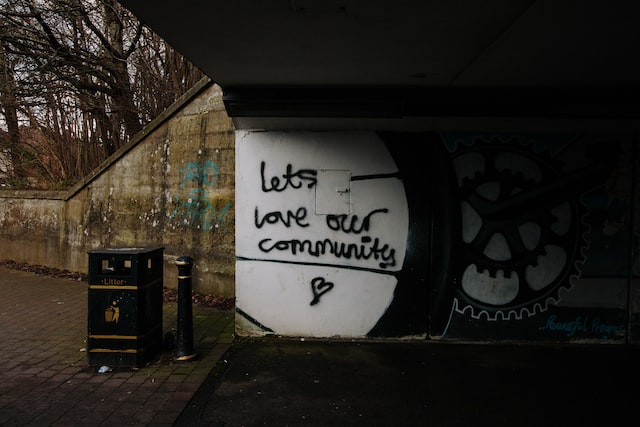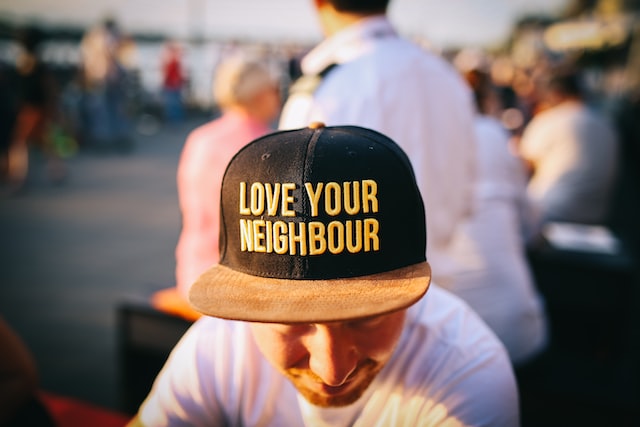Author: ELDERBERRY
Introduction

https://unsplash.com/@mikejerskine?utm_source=unsplash&utm_medium=referral&utm_content=creditCopyTex
Local culture provides a sense of identity for any communities and its residents. This identity facilitates common understandings, traditions, and values, all central to the identification of plans of action to improve well-being. Culture contributes to building a sense of local identity and solidarity. It influences the confidence communities have for coming together to address specific needs and problems. This local commitment among residents, regardless of economic or political conditions, can serve as a valuable tool in shaping the effectiveness of development options and local actions. Such commitment, based on culture and common identity, can be seen as a potentially important tool in sustaining local government, development, and social improvement efforts.
What’s the activity?

Photo by Nina Strehl on Unsplash
People have very different views of what a multicultural society or community should be like or could be like. In the past few decades there has been a lot of discussion about what it means to live and work together in a society that is diverse as ours. People struggle with different visions of a fair, equitable, moral, and harmonious society.
Your task is to envision the kind of diverse community, you and your neighbors may want to live in. Below are some questions you may want to go through with a small group to understand the dynamics:
- Who lives in your community right now?
- What kinds of diversity already exists?
- What kinds of relationships are established between cultural groups?
- Are the different cultural groups well organised?
- What kind of struggles between cultures exist?
- What kind of struggles within cultural groups exist?
- Are these struggles openly recognised and talked about?
- Are there efforts to build alliances and coalitions between groups?
- What issues do different cultural groups have in common?
These are some of the questions that can get you thinking about your how to build the kind of community you hope for.
What am I going to do?
There are many ways that people can learn about other people's cultures and build relationships at the same time. Here are some steps you can take. They are first listed, and then elaborated upon one at a time.
- Make a conscious decision to establish friendships with people from other cultures.
- Put yourself in situations where you will meet people of other cultures.
- Examine your biases about people from other cultures.
- Ask people questions about their cultures, customs, and views.
- Read about other people's culture's and histories
- Listen to people tell their stories
- Notice differences in communication styles and values; don't assume that the majority's way is the right way
- Risk making mistakes
- Learn to be an ally.
What will I learn?
- Ability to build inclusive communities
- Becoming aware of your own culture as a first step in learning about other people's culture
- Learn how to understand cultures and build relationships with people from other cultures.
- Building relationships with people from many different cultures
- Examine your biases about people from other cultures
What will I take home?
As individuals, and in groups, we can change and enhance our communities. We can set up neighborhoods and institutions in which people commit themselves to working to form strong relationships and alliances with people of diverse cultures and backgrounds. We can establish networks and coalitions in which people are knowledgeable about each other's struggles, and are willing to lend a hand. Together, we can do it!
Resources
Click each section below to see all resources available.
Resources
Click each section below to see all resources available.
Frontline Worker Toolkit
- Community development can vary based on the specific needs and goals of a particular community, but they generally revolve around improving the well-being and quality of life for community members.
- Community development aims to empower individuals and groups within a community by providing them with the knowledge, skills, resources, and opportunities necessary to actively participate in decision-making processes and shape their own future.
- Through community development, individuals and groups are empowered to explore and express their cultural identities.
Top tips:
The concept of culture has many definitions and interpretations. In social settings, it is often used broadly to represent entire ways of life. Included in such ways of life are rules, values, and expected behaviors. At its most basic level, culture can be seen as the shared products of a society. These products have a common meaning that accumulates over time and also reflect shared attachments among community members.
In community cultural development, culture functions as a connector between the community and its development. It is a catalyst and channel for a dynamic process of development, both for the community and the collaborating practitioners!
Importance of Incorporating Local Culture into Community Development
https://extension.psu.edu/importance-of-incorporating-local-culture-into-community-development

 English (EN)
English (EN)  Türkçe (Türkiye)
Türkçe (Türkiye)  Ελληνικά
Ελληνικά  Svenska (Sverige)
Svenska (Sverige)  Português (Portugal)
Português (Portugal) 
